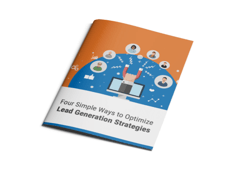How Can I Measure Digital Marketing ROI? | Analytics Tips
January 31, 2017
4 Minute Read

Question for the Expert:
How can I measure Digital Marketing ROI?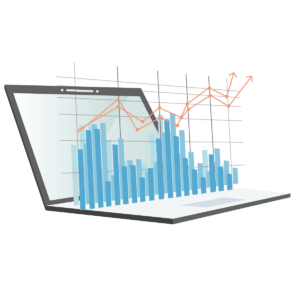
Answer from the Expert:
I heard a wise person say, “Never conduct a marketing effort if it cannot be measured.” For both traditional and digital marketing, the wisdom applies.
In the context of digital marketing, as you define your campaign objectives, make sure that each objective can be measured. Measurement attributes can include number of clicks, site traffic, landing page engagement, bounce rate, click-through rate, et cetera. The goal is to utilize captured data points to help define and tell a successful story.
And keep in mind, ROI measurements change with the times. Remember the visitor counters? The practice still continues, but more importantly, it is all about user engagement levels with website content – not visits. Web page engagement rates have now become the most critical ranking attribute. According to Moz, Google will penalize site pages with low user engagement.
How to Measure ROI on Digital Marketing?
The typical ROI formula is common knowledge: Profits – Expenses / Marketing Expenses. For example, if we are driving a campaign on jeans, and we bring in $100,000 in revenue, but spend $25,000 in marketing costs, the ROI would be $3 ($100,000-$25,000 = $75,000/$25,000), which means that we can make $3 for every $1 spent on marketing.
Outside of the traditional ROI model, the following is a quick-hit list of other important digital marketing measurements that you can apply to help you define success (list is certainly not exhaustive):
- Out of unique visits, determine how many links & shares were performed per 100 or 1,000 visits
- What is the engagement level of your content?
- From total visitor sessions, determine the number of returning site visitors
- How valuable is your website content offering?
- What is preventing users from returning to your website?
- How often does an audience share your content (and how about their influencers)?
- Is your content share-worthy?
- Attribution Modeling: What channels are driving the most conversions?
- Determine revenue by channel
- Find out revenue by page
- Omni-Channel: What is the customer interaction rates among all the Brand’s digital channels?
- What channels are the weakest and how can you strengthen them?
- Keyword Rankings: An essential SEO performance measurement, since you can compare rankings in different geographic areas against competitors in your search space.
- Organic Traffic: The reason you want rankings is to drive organic search traffic. Specifically, you should value traffic to your conversion intent pages, since these will most likely drive more ROI.
- Conversions: Measure both macro conversions (ex. eCommerce sales) and micro conversions (ex. Email signups) and understand how micro conversions lead to macro conversions.
The list of measurements can be many, and if you are not measuring performance, it is critical to start now! Wisdom (and plain smarts) implies that for any digital marketing campaign or objective, make sure you are measuring performance. Make “the wise person” and your boss very happy.
To learn more about optimizing your analytics, capturing necessary data points, and driving ongoing strategic decisions, check out ROI Intelligence.

The BFO Team
Here at BFO, we're always striving to bring you the latest and greatest in digital marketing insights and education. We're not ones to brag, but we've been lucky enough to be featured in all sorts of fancy publications and media outlets, strutting our stuff and showing off our industry expertise.
CATEGORIES
SUBSCRIBE TO OUR BLOG
Stay up to date with the latest industry best practices in digital marketing!














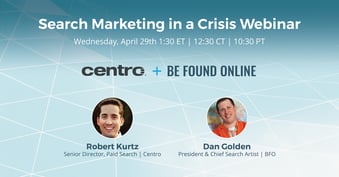

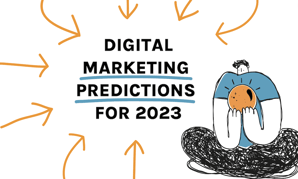






.png?width=339&height=179&name=Webinar%20Banner%20(1).png)

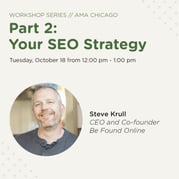

.png?width=339&height=179&name=July%20Webinar%20(Newsletter).png)

.png?width=339&height=179&name=Webinar%20Banner-April-02%20(1).png)
%20(4).png?width=339&height=179&name=Webinar%20Banner-May-02%20(1)%20(4).png)




.png?width=339&height=179&name=March%202023%20Webinar%20Ad%20(autoresponder).png)





